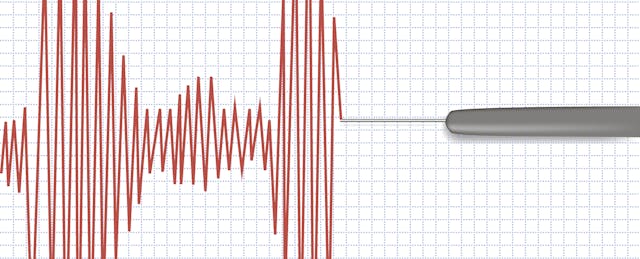In the past year, many educational institutions began to address the challenge of digital misinformation. As head of a multi-institutional project that addresses these issues, I found this heartening. Less encouraging, however, was the persistence of many myths about how misinformation works, what its risks are and how we might address it. In the hope we might have a more productive 2019, I thought I’d outline some of those myths and realities below.
Myth: The problem is our students are gullible.
Reality: The greater risk is cynicism.
Many still believe our students’ greatest weakness is gullibility; that we need to cultivate in them more suspicion of what they read. We actually find the opposite. In practice, we find that students have a moderate distrust of most everything they see online, in a phenomenon we call trust compression. On a trust scale of 0-4, students will rate a false prompt a 1. They’ll rate a true prompt a 1. They’ll rate a mixed, nuanced prompt a 1.
The implications of this orientation towards truth are far more ominous than mere gullibility. As scholars of totalitarianism have noted, the breeding ground of authoritarian movements is not belief, but cynicism. In a world where nothing can be known and all producers of knowledge are seen to be compromised, there is no truth, only power.
Myth: Critical thinking will save us.
Reality: Critical thinking, wrongly applied, can do real harm.
Whenever any educational crisis hits, there are repeated calls that students must engage in more critical thinking. It’s the thoughts and prayers of the educational industry. It’s usually pretty harmless. But in the case of disinformation, critical thinking can do real harm.
Why? Because the goal of disinformation is to capture attention, and critical thinking is deep attention. It would be comforting to think that when you engage deeply and earnestly with neo-Nazi literature or tobacco-company research that you come out more informed, provided you note all the logical traps and rhetorical fallacies. In reality, whenever you give your attention to a bad actor, you allow them to steal your attention from better treatments of an issue, and give them the opportunity to warp your perspective.
Myth: It’s a crisis of truth and facts.
Reality: It’s a crisis of reputation.
If critical thinking won’t save us, the thinking goes, perhaps facts will. Anti-vaxxers, flat-earthers, climate change denialists—they just need to be told what is true and why.
In reality, this won’t work. Why? Because we have don’t have a crisis of truth, we have a crisis of reputation.
Reputation used to be a fairly complex phenomenon. We would trust people with our own values, but we’d look for other markers as well—expertise on an issue, capability to investigate a specific claim, an agenda that involved, at least in part, more honest investigation than spin.
Today, expertise is undervalued and everyone is seen as insurmountably biased. The web makes things worse, providing an illusion of knowledge to the non-expert, and counterfeit reputation to the con artist. In such a world, the only markers of reputation left are your stated values and your perceived commitment to them.
Yet most decisions you make in life—professional, personal, political—will not depend on your knowledge or logical superpowers, but on your ability to effectively assess the reputation of experts, ideas, institutions and more. Given the importance of assessing reputation in a society of increasing specialization, a curriculum around reputation and how to assess it belongs at the core of our education, not at the fringes. And such a curriculum must put digital methods at the center.
Forward Into 2019
In the past year, I was inspired by the commitment of faculty and institutions to rise to the challenges of the current moment. I was even more inspired by the students I met and taught, who seemed to take our current epistemic crisis as a personal affront. There is an amazing generosity of spirit around this issue. If we can focus that generosity on the right problems, we just might make it out of this mess together.


